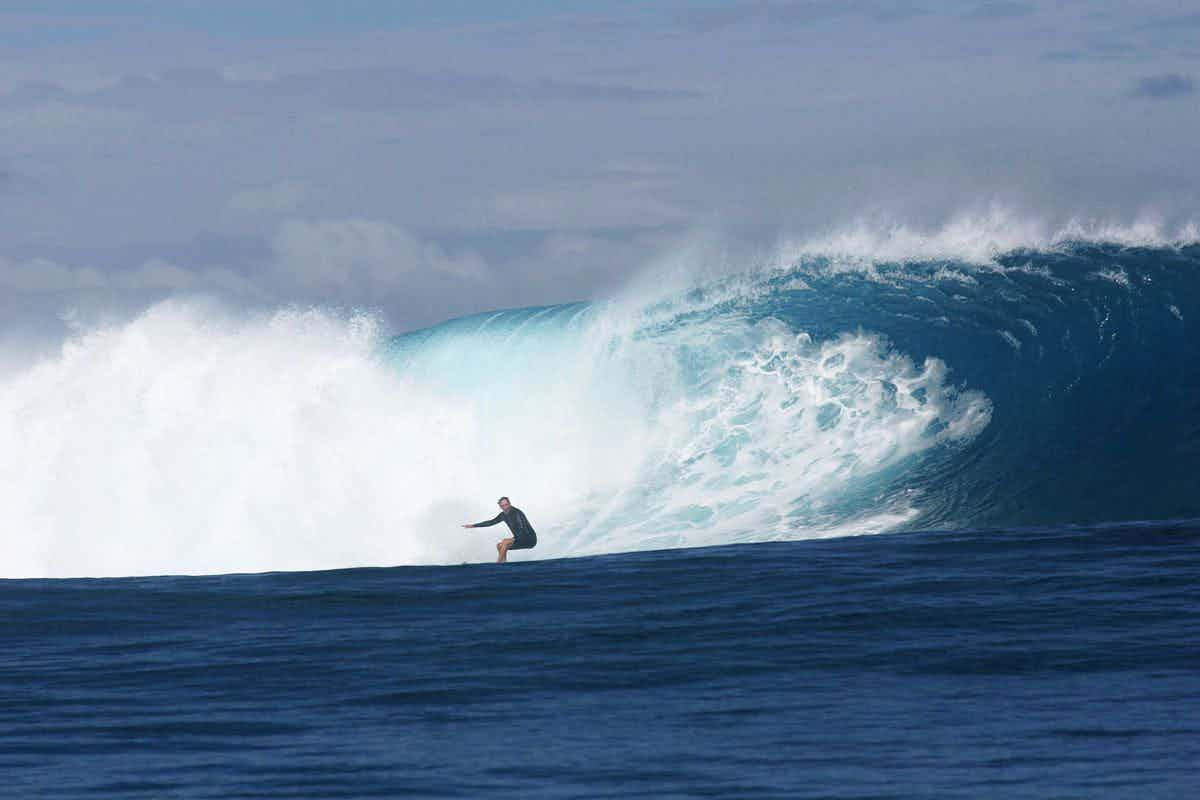Interviews, People, Surf cultureHigh Praise for Babarian Days

Few writers have ever really done the act of riding waves the justice that surfers believe it deserves; lifelong surfer and New Yorker staff writer William Finnegan is one of them though, and not only has the surf world applauded his 2015 memoirs Barbarian Days, but the literary world has too when on April 18th Finnegan was awarded the Pulitzer Prize for Biography.
Back in mid-December, Surf Simply’s Ru Hill interviewed Finnegan for an episode of the Surf Simply podcast, during which they discussed several of the dramatic scenes portrayed in the book, writing about surfing for non-surfers, his discovery of the waves of Tavarua in the late-1970s, and how to balance an obsession with surfing with a desire to make a meaningful contribution to society.
“I kind of have this bipolar life where I write about politics and dash around the world being a political journalist and book writer, and then the other pole is surfing which for me represents irresponsibility – and the north pole of that! It’s nature worship; it’s quite beyond a hobby or a sport. Surfing seriously, at least as I’ve done and understood it, involves a real abandonment of the civic virtues of duty, responsibility and productivity. It’s a supremely unproductive thing to be doing, but this book is partly about the struggle against responsibility which surfing has represented for me, because I’m also quite interested in being useful, and being a citizen – that’s where the title Barbarian Days comes from.”
Finnegan’s publishers, Penguin, describe Barbarian Days as “an old-school adventure story, an intellectual autobiography, a social history, a literary road movie, and an extraordinary exploration of the gradual mastering of an exacting, little understood art.” On its way to winning a Pulitzer Prize, Barbarian Days has succeeded where many previous literary works centred around riding waves have failed; it manages to appeal to non-surfing readers without alienating regular surfers. When asked how he managed to stay away from tired clichés, and if he’d written it with a non-surfing audience in mind, Finnegan replied:
“It was very much written for the general reader; the non surfing reader. I try and introduce each technical surfing term that appears early on in the book with a little explanation to keep people oriented. You have to pay close attention – I’m not going to do it again and there’s no glossary or anything. I tried to slip it in gently, mainly in the childhood sections in Hawaii and California so that it’s not too annoying for surfers to read – this is what a channel is; this is what a swell is. But it is very much written for the general reader, and in the surfing scenes (of which there are many) I try to keep people oriented and have them feel that there’s something at stake; the basic tools of drama to make something interesting to someone who’s not a fanatic like you and I. Usually what’s at stake isn’t life and death, as I was just describing at Jardim do Mar in Madeira, which was an unusually heavy scene. The way to stay away from clichés really, I think, is to be very specific and to remember closely what actually happened. In the case of that night at Jardim do Mar I remember how it smelled, and the sort of weird things that we had to do to get ashore, and what one saw at a given moment – those things keep you in the moment and, you hope, don’t devolve into clichés.”
You can listen to the full interview on episode 23 of the Surf Simply podcast by clicking the link at the top of this page, whilst Barbarian Days is published by Penguin Press and available from all good book retailers.